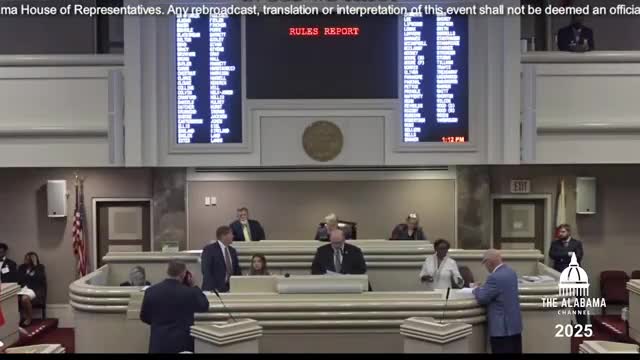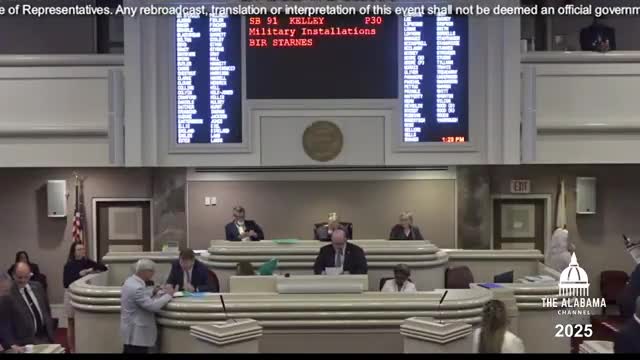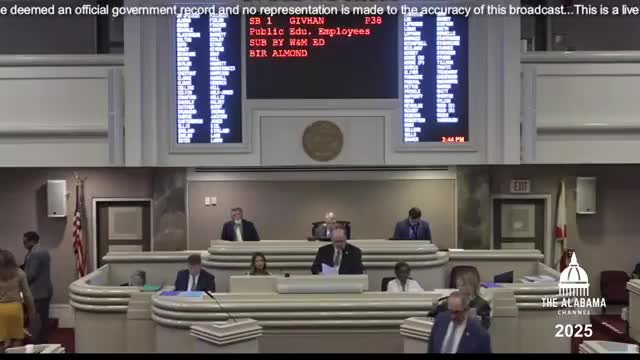Article not found
This article is no longer available. But don't worry—we've gathered other articles that discuss the same topic.

House adds superintendent to Alabama Quantum Evaluation Task Force; lawmakers debate purpose and timing

House advances military package: Fort Novosel safety, veterans' housing and licensing bills move forward

House extends workers' compensation to teachers, bus drivers and other public‑school employees

House passes PBM reform after negotiated amendment aimed at protecting community pharmacies

